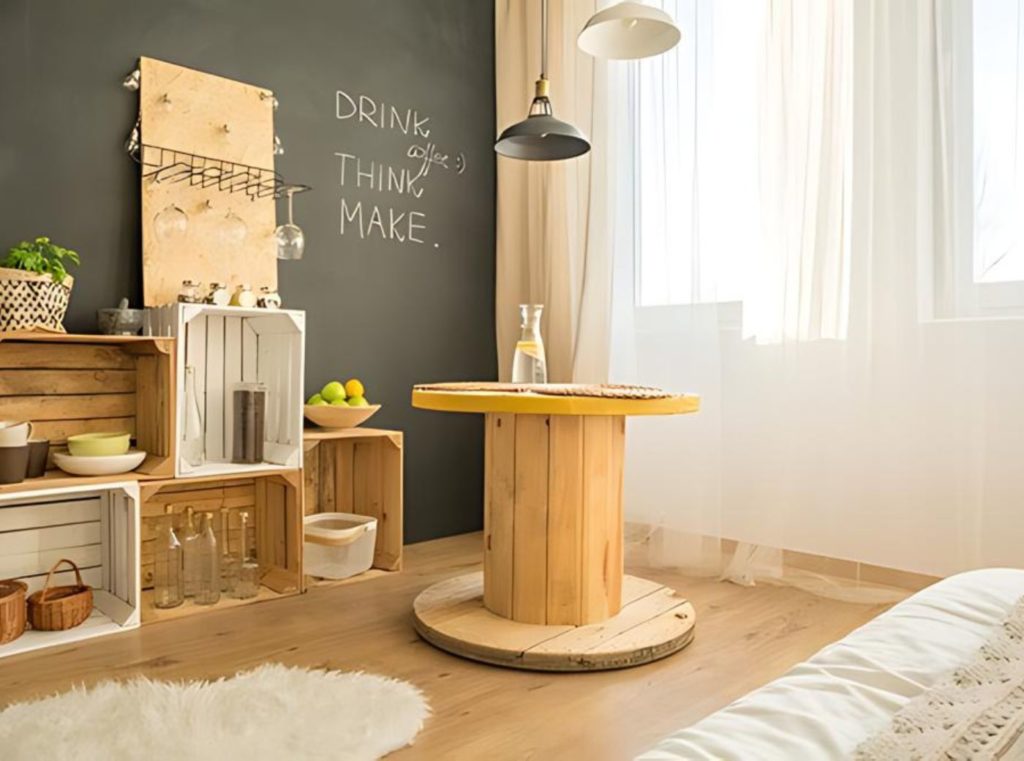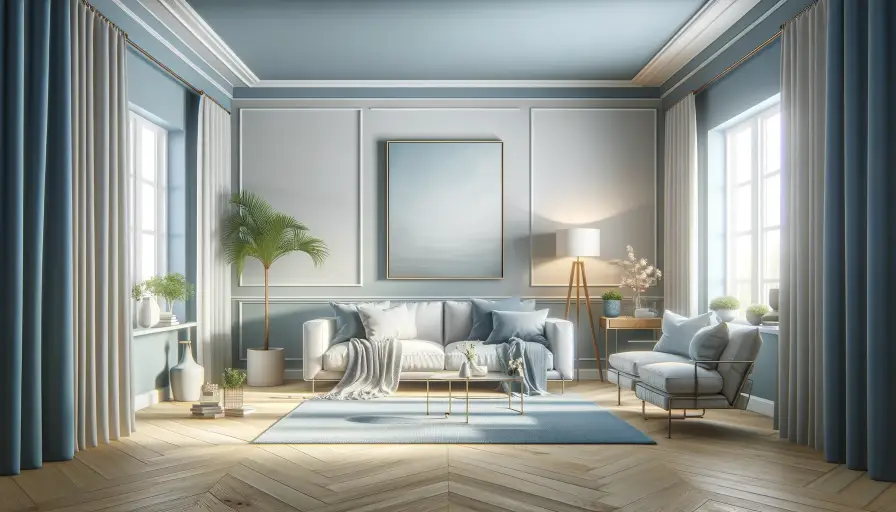The art of interior design is a coveted landscape of creativity. Everyone has ideas to improve the aesthetics of their home, they all have a vision they want to bring to light. Yet, not everyone has the instincts to combine the right colors, patterns, and textures with the functionality of form and flow.
This is where interior designers come into the picture.
The interior design industry is a basic necessity much like banking, healthcare, and real estate, and here’s why –
Everyone wants a home that makes them feel comfortable and loved. Regardless of their financial conditions, every man, woman, and child desires a house that reflects their preferences, their feelings, and the love they share with family and friends. Interior architecture, design, and the right interior designing tools play a crucial role in achieving this sense of tranquility.
An interior designer is not just a person who adds furniture pieces, chooses paint colors, and decorates the walls with art deco.
- They are the ones that use the psychology of color theory to best understand what colors influence your psyche.
- They evaluate the interior space and choose pieces of furniture, fixtures, and décor that liven up your home and make it feel more like the homeowner.
- They use their competencies and merge them with what the homeowners need.
In short, as an interior designer, you have a grave responsibility. You will be the one to design the home where your clients are going to spend the majority of their life. Therefore, you need to know what you’re doing.
Read also – How To Become An Interior Designer?
Image Credit: ivy.co
What does an interior design certification entail?
Much like any profession on the face of Earth, an interior design certification proves your eligibility to take on impressive design projects.
Interior design courses, no matter if they are full-time degree programs or online courses, or even your electives that offer certificate programs, teach you the tools of the trade. While an interior design certificate is not mandatory to apply for jobs, being accredited by the National Council does open a lot of doors.
You see, an NCIDQ examination is not easy since you need to prove how well-versed you are in design concepts and color theory to best serve your clientele. The licensure provides a subliminal guarantee to your clients that you know what you’re doing, hence you deserve to be hired and paid for your services.

Image Credit: cidq.org
Additionally, as a certified interior designer, you can become a part of the American society of interior designers and eventually move on to the International interior design association. These associations increase your chances of expanding your professional services to a larger scale by connecting you to substantial networks.
Read also – What Does An Interior Designer Do?
Top Interior Design Certifications:
- National Council for Interior Design Qualification (NCIDQ)
- American Academy of Healthcare Interior Designers (AAHID)
- American Lighting Specialist (ALA)
- Council for Interior Design Accreditation (CIDA)
- Certified Interior Decorator (CID)
- Interior Design Continuing Education Council (IDCEC)
- International WELL Building Institute (IWBI)
- Leadership in Energy and Environmental Design (LEED)
- National Association of Home Builders (NAHB)
- National Association of the Remodeling Industry (NARI)
- National Kitchen and Bath Association (NKBA)
What do you learn in an interior design certificate program?
Before we talk about what you can learn during your interior design courses, let us talk about your options.
A full-time course or electives in a reputed design school can seem a little expensive. However, if you are serious about a career in interior architecture and design then you need to opt for a viable bachelor’s degree at the very least. If the costs of enrollment seem a little high, then the good news is, you can choose from a number of options for financial aid.
Continuing education is never a problem and always a blessing. There are new interior design trends and technologies introduced every day. So learning them empowers you to better serve your clients and make a name for yourself in ASID.
That being said, here are a few things you learn during your degree programs or even online courses and electives that help you create extensive design concepts:
1. Space planning
Learning how to better accommodate your client’s needs based on the amount of available square footage. Using vertical spaces and appropriate furniture and fixtures to brighten up the interior space, regardless of the size of the property.
2. Patterns, textures, and textiles
How to best combine different patterns and textures in home design. Learning to incorporate various fabrics and textiles to enhance the aesthetic appeal.
3. Color theory
Understanding the effects of different paint colors and color schemes on the human psyche and using that to influence positivity, serenity, and productivity for the homeowners.
4. Computer-aided design
Learning to create 3D models through computer programs and web-based applications for a realistic rendering of your design concepts.
5. Drafting construction documents
Studying the basic drafting process of design models and construction documents correctly in order to avoid discrepancies during your professional practice.
6. Different styles of interior design
An in-depth understanding of different design themes such as Victorian, Rustic, Contemporary, Minimalist, Oriental, Farmhouse, French Classic, etc.
7. Residential interior design vs commercial spaces
Theory of incorporating coziness and love in residential interior design plans and a need for accomplishment and motivation in workplace design trends. Also, understanding the need for balance in interior design concepts to inspire competencies while still radiating a sense of camaraderie in both situations.
8. Simplifying and streamlining the design process
Learning the fundamentals of project management to successfully complete all your design assignments on time, within budget, and with better accessibility for clients and design professionals alike.
9. Understanding people
The art of reading between the lines so you can fulfill a client’s needs to the letter. Also, understanding how each design element influences the client’s psyche and that of their loved ones. When your deliverables match their expectations, it inspires them to recommend your design services to their friends and family.
10. Advertising your design firm for maximum reach
How to best promote your professional services to desirable clientele and improve your revenue in massive leaps.
Of course, not all courses will entail all these concepts but that’s what electives are for. A basic bachelor’s degree will, however, teach you all you need to know to start your professional practice. A certification from the NCIDQ exam enables you to acquire your licensure and join the interior design industry. And how seriously you choose to better upgrade your understanding to make a name for yourself and ensure your sustainability is completely up to you.
Read also – Best Interior Design Communities
What are the benefits of an interior design certification?
Here are some of the major benefits you enjoy from being accredited with an interior design qualification with certification:
- Your eligibility to apply for bigger projects with established developers hits the sweet spot.
- You become a member of the American Society of interior designers thus enabling you to network with substantial clients.
- Clients have more faith in your competencies.
- Your design firm gains a reputation due to the incredible deliverables based on a thorough understanding of design concepts.
- It opens up job opportunities in more established states such as New York, Texas, Florida, DC, etc. where interior design certifications are mandated.
- Your fundamentals and concepts are thorough therefore you can create computer-aided designs even as an entry-level decorator in order to attract and influence clients.
- You rise through the ranks at your design firm much faster with incredible work experience to join the elite club of interior designers. This improves your annual income, standard of living, and social stature.
Yes, everything comes easier when you put in the effort. The simple interior design courses coupled with passing the NCIDQ examination inadvertently marks you with a stamp of approval. It provides reassurance to substantial clients to hire your services while providing you with the much-needed self-confidence to pursue your dreams.
Read also – How To Create An Interior Design Resume?
Conclusion
If you are an aspiring interior designer, consider taking a certification course. If you cannot avail of financial aid for degree programs, then consider the short online courses, electives, or workshops that provide certification.
Although these minor certifications qualify you for several job opportunities and acquiring design projects for individual clients, if you want to participate in the big leagues, an NCIDQ certification is the way to go. Apply for the NCIDQ exam and acquire the interior design qualification necessary to prove your eligibility and competencies in the field. It will help you avail better job opportunities with better pay scales.
If you are absolutely unable to get the certification, you can still work in several non-compliant states where a degree and certification are not mandated. You can impress the client and hiring committees with your exceptional skill set and still make a substantial living. We recommend using the Foyr Neo software to create 3D renderings of your design concepts to make a lasting impression.
Whatever you choose to do, evaluate your options and make an informed decision. Having an interior design certification cannot hurt your chances but not having one limits your options. So choose wisely.









